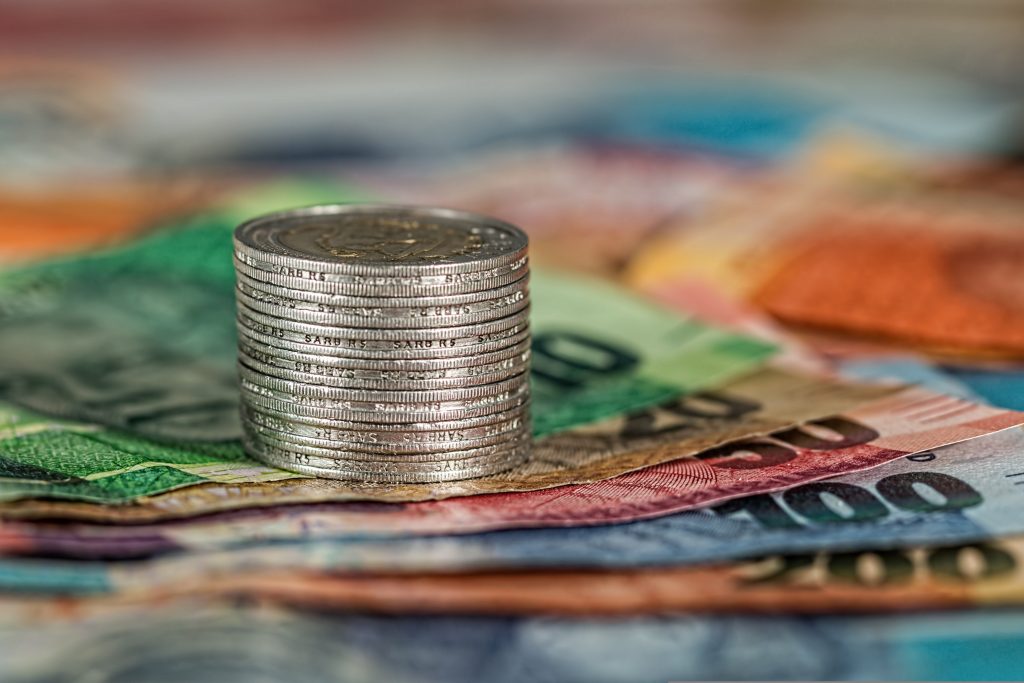Economy likely saw a rebound, but could be downhill from here

close video Biden is trying to avoid blame for a bad economy: Peter Suderman
Reason features editor Peter Suderman discusses the likelihood of a recession and the impact inflation and the economy will have on the midterm elections on ‘Kennedy.’
The U.S. economy likely grew in the third quarter after back-to-back contractions. However, the sudden rebound may mean little to U.S. households and businesses still grappling with painfully high inflation and rapidly rising interest rates.
The Commerce Department is set to release the highly anticipated third-quarter gross domestic product reading Thursday morning, which is expected to show that economic growth increased 2.1% in the period from July to September.
But the anticipated turnaround doesn't actually reflect improvements in the economy, which is still besieged by inflation running near a 40-year high and likely headed toward a recession next year, economists say.
"We expect the U.S. economy to experience a mild recession, with two consecutive quarters of contraction in late 2022 and early 2023," said Cailin Birch, a global economist at the Economist Intelligence Unit. "Stubbornly high inflation, a sharp rise in borrowing costs and slowing growth elsewhere in the world will all weigh on economic activity."
INFLATION SURGED MORE THAN EXPECTED IN SEPTEMBER AS PRICES REMAIN STUBBORNLY HIGH
A woman shops for groceries at a supermarket in Monterey Park, Calif., Oct. 19, 2022. (Federic J. Brown/AFP via Getty Images) / Getty Images)
The return to growth in the third quarter likely stems from the strong U.S. dollar, which lowered the cost of imports in August, according to Jeffrey Roach, chief economist at LPL Financial. Consumer spending has also remained steady in the face of unrelenting inflation.
But economists anticipate it will be a one-off as the Federal Reserve embarks on one of the fastest courses in history to raise borrowing costs, slow the economy and crush inflation.
CLICK HERE TO READ MORE ON FOX BUSINESS
"The higher inflation that has ensued requires higher interest rates and tighter financial conditions to bring it back down and will lead to what we think will be a recession next year," said Joe Brusuelas, RSM chief economist.
Economic growth already contracted in the first two quarters of the year, with gross domestic product — the broadest measure of goods and services produced in a nation — contracting by 1.6% in the winter and 0.6% in the spring, signaling a technical recession.
Jerome Powell, chairman of the U.S. Federal Reserve, arrives to speak during a news conference after a Federal Open Market Committee meeting in Washington, D.C., Sept 21, 2022. (Sarah Silbiger/Bloomberg via Getty Images / Getty Images)
Recessions are technically defined by two consecutive quarters of negative economic growth and are characterized by high unemployment, low or negative GDP growth, falling income and slowing retail sales, according to the National Bureau of Economic Research (NBER), which tracks downturns.
With back-to-back declines in growth, the economy meets the technical criteria for a recession, which requires a "significant decline in economic activity that is spread across the economy and that lasts more than a few months." Still, the NBER — the semi-official arbiter — weighs multiple factors when calling a recession and has not yet announced a decision.
The NBER has stressed that it relies on more data than GDP in determining whether there is a recession, such as unemployment and consumer spending, which remained strong in the first six months of the year. It also takes into consideration the depth of any decline in economic activity.
A customer shops at a supermarket in Millbrae, Calif., Aug. 10, 2022. (Li Jianguo/Xinhua via Getty Images / Getty Images)
There is a growing expectation on Wall Street that the Federal Reserve will trigger a downturn as it continues to raise interest rates; policymakers have already approved five straight rate hikes, including three 75 basis point increases. At their last meeting, central bank officials laid out an aggressive path for future increases that will put the federal funds rate range well into restrictive territory.
Fed Chair Jerome Powell has conceded that the central bank will tip the economy into a recession with its rapid rate hikes, warning that higher rates will cause economic "pain."
GET FOX BUSINESS ON THE GO BY CLICKING HERE
"The chances of a soft landing are likely to diminish to the extent that policy needs to be more restrictive or restrictive for longer," Powell told reporters in Washington in September. "Nonetheless, we’re committed to getting inflation back down to 2%. We think a failure to restore price stability would mean far greater pain."

